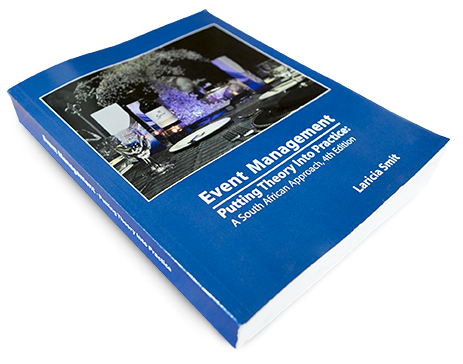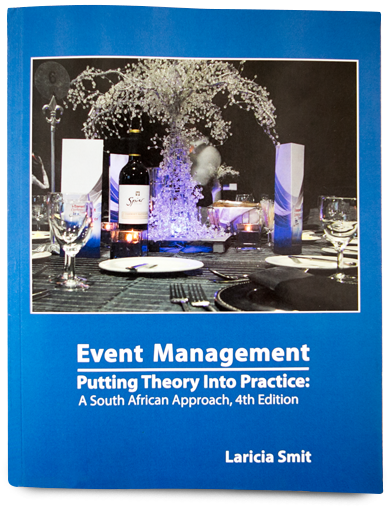This handbook emerged from my experience as a lecturer in event management over the past eighteen years.
During my interaction with both full-time and part-time learners, I realised that the prescribed handbooks were pitched at too high a level (as some of the learners were entry level) and did not take the South African event management industry into consideration and that the examples used were either in a British or Australian context.
South African learners struggled to relate to these examples, as some of them have never been out of the country. Another concern was that the majority of the current handbooks were highly theoretical, barely referring to practical examples.

The book provides learners with actual tools – templates and checklists that they will need as effective event managers.
It was further evident that the essential tools required in event management, such as checklists, plans and templates, were lacking in these books. The more the industry evolved and the more learners enrolled to become professional event managers, the more they asked questions such as:
- “How do I write a sponsorship proposal that sells?”
- “How do I write a press release to create awareness of my event?”
- “How do I start my own event management company?”
Many such questions went unanswered because the current material did not do so.
The content of the book has specifically been developed to meet the needs of both learners and practitioners in the industry.
The handbook aims to:
- provide learners with the tools and templates needed in the industry
- provide illustrative examples where possible
- provide learners with comprehensive know-how about organising events, from the initial concept event to evaluation and divestment
Various features were built into the content to enable learners to understand the industry better. They include the following:
- Definitions and key concepts to introduce learners to the terms used in the event management industry
- References to event-related websites for South African and the international events industry

